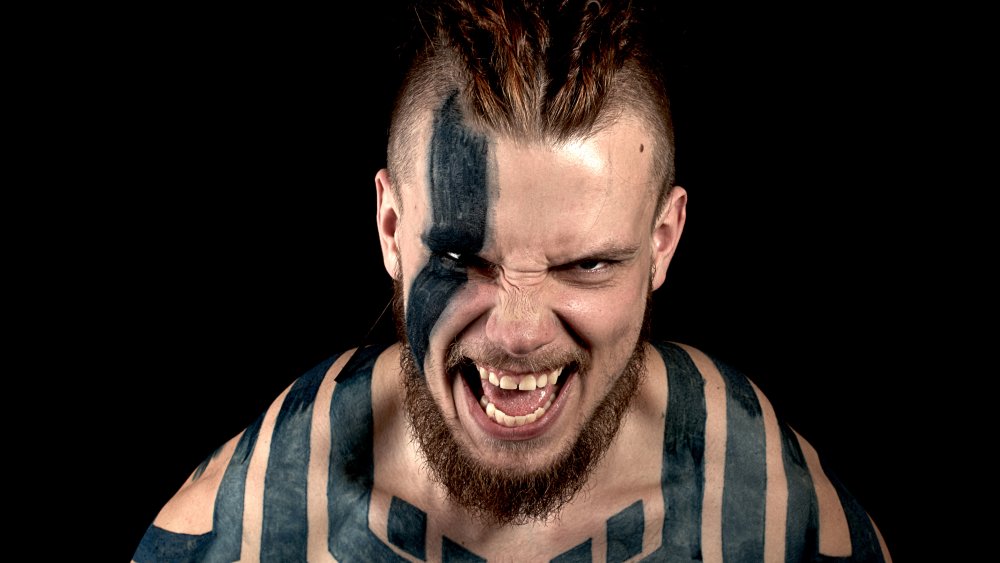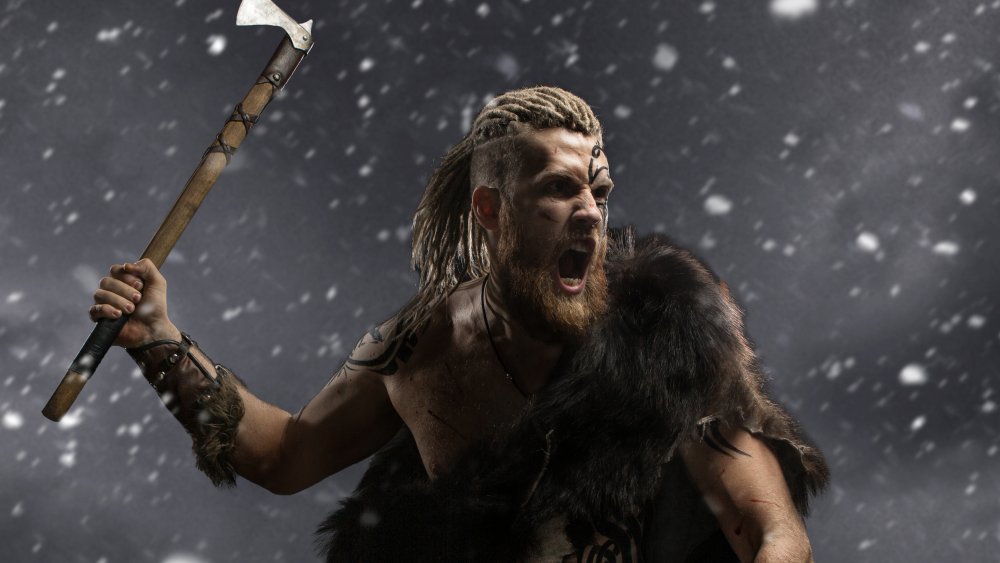The Untold Truth Of Viking Berserkers
From the freezing cold of the North, they would descend on their enemies, naked but for bear skin cloaks, frothing at the mouth and biting at the iron edges of their shields: berserkers, the wild-eyed ursine barbarians, renowned for their supernatural strength and acumen on the battlefield, their existence somewhere on the periphery of history and Viking myth. But what do we really know about these embodiments of unadulterated physical fury, whose love for you is like a truck and whose prowess on the battlefield has made their name synonymous with unbridled rage?
We know that they wore a lot of fur, and were probably deep into hallucinogens. That's right — the ultimate Germanic iron age warrior was basically just a light-up pacifier away from being EDM club trash.
There are a few theories surrounding the legend of berserker warriors and their uncontrollable battle rages. Some point to shamanic practices as the source of their seemingly transformative warrior state. The Saga of King Hrolf Kraki, a centuries-old Scandinavian legend that doesn't get any easier to pronounce phonetically as you continue reading, describes a berserker warrior who would shapeshift into a bear in battle. The reality, it seems, is a little less magical. They were probably just on a lot of drugs.
Once you reach a drug-induced warrior state, the tendency is to push it as far as you can
So what was the whizbang ingredient in a berserker's bottle of Michael's Secret Stuff? What put the Fus in their Fus Ro Dah? Speculation varies wildly. The Vintage News hypothesizes that the Norse wildmen were into mushrooms — specifically, Amanita Muscaria, or Fly Agaric, a toxic red capped fungus with a long list of unpredictable hallucinogenic side effects. There's a more solid argument to be made that berserkers ingested stinking henbane, the seeds of which have been found in multiple Viking burial sites, according to Science Norway. The effects of henbane ingestion mark a lot of the boxes describing the berserker process: shivers, aggression, confusion, a dulled sense of pain, and a hangover you wouldn't believe.
Maybe the most fascinating hypothesis surrounding berserkers comes from clinical psychiatrist Jonathon Shay. As quoted in Psychology Today, he theorized that a so-called "berserker state" was actually a symptom of emotional trauma that was evident in patients who had served in Vietnam. "If a soldier survives the berserk state, it imparts emotional deadness and vulnerability to explosive rage to his psychology and permanent hyperarousal to his physiology -– hallmarks of post-traumatic stress disorder in combat veterans."

